- Home
- Pearl S. Buck
Peony: A Novel of China
Peony: A Novel of China Read online
Peony
Pearl S. Buck
Contents
Chapter I
Chapter II
Chapter III
Chapter IV
Chapter V
Chapter VI
Chapter VII
Chapter VIII
Chapter IX
Chapter X
Chapter XI
Chapter XII
Chapter XIII
Afterword
Bibliography
A Biography of Pearl S. Buck
AT VARIOUS TIMES IN history colonies of Jews have gone to China and lived there. The city of K’aifeng, in the province of Honan, was a center for them. In China they have never been persecuted, and if they have suffered hardships, these were only the hardships of life in the community where they were.
In its basis, therefore, this novel may be said to be historically true, although the characters, with unimportant exceptions, are the creatures of my imagination. The story takes place at the period, about a century ago, when the Chinese had accepted the Jews, and when, indeed, most Jews had come to think of themselves as Chinese. Today even the memory of their origin is gone. They are Chinese.
The Jews of China 1000-1932
Between 200 and 1000 A.D. many Jewish traders from Turkestan and refugees from Persia had settled in China.
884 Revolt of Jewish and Muslim merchants. Many massacred.
Towns which probably had small Jewish communities by 1200 A.D. Many of these had certainly been founded over 500 years earlier. All but Kaifeng had disappeared by 1650.
In 1286, Marco Polo wrote of the strong commercial and political influences of the Jews in China.
By 1890 the only Jews left who still recognized their Judia nsm were 200 families at Kaifeng.
“During the past forty or fifty years our religion has been but imperfectly transmitted and although its religious writings still exists, there is none who understands as much as one work of them. … It has been our desire to repair the synagogue and again to procure ministers to serve in it, but poverty prevented us.”
Letter from the Jews of Kaifeng to the British Consul at Amoy, 1850
THE JEWS OF KAIFENG
1163 Kaifeng synagogue built.
1427 Jewish officials organize famine relief.
1642 Jews active in the defence of the town against bandits.
1663 Restoration of the synagogue.
1850 Jews appeal to British Consul at Amoy.
1914 Site of the synagogue and cemetery bought by Canadian Church of England Mission.
1932 Jews photographed by an American traveller.
I
IT WAS SPRING IN the city of K’aifeng, a late spring in the northern Chinese province of Honan. Behind the high city walls the peach trees, planted in courtyards, bloomed earlier than they did upon the farms spreading over the level plains around the moat. Yet even in such shelter the peach blossoms were still only rosy buds at Passover.
Within the courts of the house of Ezra ben Israel the peach blossoms had been cut several days early and had been forced to bloom in time for the feast. Each spring Peony, the Chinese bondmaid, made it her task to provide thus for the branches of flowers that stood against the walls of the great hall. Each year Ezra, her master, and Madame Ezra, her mistress, took notice of what she had done. Knowing how cold the spring had been this year and how long the dusty northwest winds had blown upon the city, they had given her special praise when they entered the great hall this night for the feast.
“See what magic our little Peony has wrought this Passover,” Ezra had said, his plump hand gesturing toward the flowers.
Madame Ezra had paused to admire. Her impetuous look grew kind. “Very pretty, my child,” she had said to Peony.
Peony had remained properly silent, her small hands folded above her flowing sleeves. David’s eyes she met and avoided as he smiled, but Leah’s warm smile she accepted, answering it with a small quiver of her lips. The old rabbi had given no sign. He was blind and so he saw nothing. As for Aaron, his son, Peony did not look at him.
They took their seats at the ample round table that had been placed in the middle of the hall, and Peony began to direct the serving of the food in her noiseless graceful fashion. Four menservants obeyed her, and Wang Ma, the elder woman servant, poured the tea.
As long as she could remember, Peony had watched this evening feast in early spring in the house of Ezra. She had directed the placing of every dish and utensil upon the table and the servants had obeyed her because she knew, as well as though she had been a daughter in the house, exactly where each dish was to be found and each placed. The dishes were kept the year round, unused except for this night before Passover. The silver spoons and chopsticks, the great seven-branched candlesticks, all were shining in the light of the lanterns hung from the high red beams. Upon a vast silver tray she herself had placed the symbols she did not understand, but which each year she prepared, a roasted egg, bitter herbs, apples, nuts, and wine. They were curiosities of a foreign religion.
But the whole day was a strange one in this unheeding Chinese city. Although Peony knew the rites well, each spring she wondered at them again. The search through the house for bits of leavened bread! Ezra, the master, had made the search this morning as he always did, laughing as he went carelessly from spot to spot, and asking her if that were all. Madame Ezra used always to hide the bits of leavened bread for him to find, but now for several years she had let Peony do it, and Ezra had commanded her to count the bits so that he would know when he was finished. He made a joke of it, as though he were somewhat ashamed before the servants. When Peony and David were children, they had laughed immoderately at the search and had joined in it with merriment, pointing out each crumb of the forbidden bread. But then she had not known that she was only a bondmaid.
Now she knew. She stood quietly watchful, as the feast proceeded. Each person at the table was known to her in some fashion. David she knew best. For David’s sake she had been bought in a year of famine, when the Yellow River had burst its dikes and had swept over the low-lying land. She had been too young to remember that sale of herself. Try as she might, she could remember no face before David’s face. He was her first memory, a gay boy, two years older than she, always much taller, much stronger, so that instinctively she turned to him and depended upon him. In those days she had told him all her little thoughts and sorrows, and it had been a habit hard to break. Yet her own wisdom had taught her that it must be broken. It was not sensible to think that the bond between two children could continue beyond childhood, not when one was master and the other bondmaid.
She did not repine, knowing herself fortunate in this kindly Jewish household. Ezra ben Israel, the head of the house, was a cheerful, stout-bodied merchant. Did he cut his full beard, Peony often thought, he would have looked Chinese, for he had had a Chinese mother. This was a grief to Madame Ezra, and so none spoke of it. She took comfort in the knowledge that David, her son, looked like her rather than his father, and she was fond of declaring, indeed, that David was most like her own father, for whom she had named him. All the house feared Madame Ezra not a little, even while each depended upon her for some private good, for her great kindness was likely to be undone at any moment by a sudden temper. She was a woman nearing fifty years of age, tall and large, handsome if one did not dislike a high nose and bright color. With all her warmth, she had also certain rigidities of belief and habit that could not be shaken. Thus, as usual on the Passover feast, Madame Ezra had invited the Rabbi and his two children, Aaron and Leah. Aaron was a pale secretive youth of seventeen, whom Peony despised for his pale splotched face and his corruption. Whether his family or Ezra’s house knew of his evil deed
s she did not know, and it was beneath her to inquire. Perhaps none of the Seven Surnames and Eight Families, as the Jews were called in K’aifeng, knew all that the Rabbi’s son did, and the Chinese were too kind to tell them.
Leah was different. Leah was good, one of those rare creatures born beautiful and good together. From her waiting place near the table Peony watched Leah with a sad pleasure that she would not allow to become envy. Tonight in her wine-red robe girdled at the waist with a gold band, Leah was wholly beautiful, except perhaps that she was too tall. The Chinese did not like tall women. Yet against this defect, Leah had a cream-pale skin and large dark eyes glowing between long curled lashes, and her lips were red and full. The nose, again, was too high for Chinese beauty, although it was not large as Madame Ezra’s was.
Leah was more than beautiful. She was filled with some spirit, a high quality, which Peony admired and did not understand. The Chinese said of her, “She is heaven-good.” They meant that her goodness was natural and that it flowed from a fountain within herself. As she sat beside her father, quick to help him when he moved his head, she illuminated the feast with joy, even though she seldom spoke.
Something of this, perhaps, came from her father, the Rabbi. A man of great height and spare frame, he was clothed with saintliness as with a robe of light. Years ago he had caught a disease of the eyes from which many Chinese suffered, and since no cure was known, he had become blind. Being foreign, he had no immunity, and upon him blindness fell quickly. He had not seen his dead wife’s face after she was thirty years of age, and Leah and Aaron he had seen only as little children. Whether, not able to see these human faces, he was compelled to look only upon the face of God, or whether from his natural goodness, he appeared now to be all spirit and no more flesh. His hair, which had grown white soon after he became blind, framed his white and beautiful face. Above his long white beard his high nose and sunken eyes were proud and calm.
Thus they sat at the feast table and Peony saw every movement and smile. She saw David look at Leah across the table and look away again, and she repressed the pang this gave her. He was Leah’s equal in height, and Peony thought him even more beautiful. At nineteen David ben Ezra was nearing the fullness of his young manhood. His Jewish garments became him; this Peony had to admit, although she did not like them because they made him strange to her. On usual days he wore Chinese robes because he said they were more comfortable. But tonight he wore a blue and gold robe, and on his head his blue silk Jewish cap pressed down his dark short curls. She could not keep from looking at him, and then he caught her eyes and smiled at her. Instantly she bowed her head, and turned away to bid Old Wang, the eldest manservant, to fetch the Passover wine jug.
“Take it to the Master,” she directed.
“I know,” he hissed. “You need not tell me after all these years. You are as bad as my old woman!”
As he spoke Wang Ma, his wife, came in with more servants, bearing basins and pitchers of water, and towels ready for the ceremony of hand washing. But Ezra, instead of blessing the wine, rose from the heaped cushions of his chair and filled the Rabbi’s glass.
“Bless the wine for us, Father,” he said.
The Rabbi rose and lifted his glass and blessed the wine, and they all rose and drank. When they were seated again Wang Ma led the servants and they poured water into the silver basins, and each person at the table washed and dried his hands. Then each took a bitter herb and dipped it in the salt and ate it.
It was all familiar to the Chinese servants and yet always strange. They stood about the room, silent, their dark eyes watching in fascination and wonder and respect. Under their gaze Ezra was not wholly at ease as he proceeded with the rites.
“David, my son, Leah is younger than you, and she will ask the four questions this time,” he said.
And Leah, blushing a little, said the questions four times in her deep and sweet voice, which still was somehow childlike.
“Wherein is this night different from other nights?”
Four times she asked and four times the answers came from those about the table, the Rabbi’s great solemn voice louder than any:
“On all other nights we may eat leavened bread but on this night only unleavened.
“On all other nights we may eat other kinds of herbs but on this night only bitter herbs.
“On all other nights we need not dip an herb even once, but on this night we do so twice.
“On all other nights we eat sitting upright, but on this night we may recline.”
When the four questions had been asked and answered, Ezra said, “Tell us the story now from Haggadah, Father.”
But here Madame Ezra spoke with reproach. “Oh, Ezra, it is you, the father of our family, who should tell the story! I do believe you have forgotten it, for every year you will not tell it. If only you read Hebrew you could read it to us.”
“I would not dare, in the presence of the Rabbi,” Ezra said, laughing.
So the old rabbi told the ancient story of how once their people were bondmen in a foreign land and how one of them named Moses rose up to set them free, and how he bade his people bake bread quickly without leaven and kill a lamb and mark their doorposts with its blood, and how after many plagues the last plague came upon their rulers so that the first-born son in every family died, and at last the king of that country bade them go. Thus forever each year this day was their festival of freedom.
“Until,” the Rabbi said, lifting his head high, “until we return to the land that belongs to us, our own land!”
“May it be soon!” Madame Ezra cried and wiped her eyes.
“May it be soon,” Leah said gravely.
But Ezra and David were silent.
Four times during the long story Peony had motioned to the servants to pour wine, and four times all drank in memory of what she did not know, but she knew the wine must be poured. The very meaning of the word “Jew” Peony did not know, nor did any Chinese know, beyond the fact that these foreigners, who prospered so well in the rich city, had come long ago from a far country, Judea, or as it was called, the Country of the Jews. Through Persia and India they had come by sea and land to China. At many times in history, in one generation after another, they had come as merchants and traders in a small steady human stream. But every now and again they came in a sudden crowd of some hundreds at a time, bringing their families and priests with them. So had Ezra’s own ancestors come, scores of years ago, one of seventy families, through India, and bringing with them bolts of cotton goods, which was treasure to the Chinese, who only knew the making of silk. This gift, presented to the emperor of that early dynasty, had won them favor, and upon them he bestowed the Chinese family name of Chao, by which surname Ezra was known to this day in the city of K’aifeng.
The Chinese in the city viewed these modest invasions with tolerant eyes. They were a clever people, these Jews, full of energy and wit, and often a Chinese, indolent with years of good living, employed a Jew to manage his business. Almost as often he gave a second or third daughter to the Jew for his wife, but the Jews never gave their daughters in return.
“Quick, you turnip!” Wang Ma now whispered to Old Wang as the Rabbi sat down. “Fetch the eggs!”
Wang Ma had been a bondmaid, too, in this house, and even as Peony now watched, so had she in the days when she was young and pretty. Too kind, too old now to be envious of Peony, yet sometimes she stepped forward before the family.
Old Wang ran to the door and shouted and two servants came in with bowls of eggs boiled hard in salt water and peeled. Each one at the table took an egg, and in silence they ate.
“Signifying our tears and our hope,” the old Rabbi murmured, and his deep voice echoed about the table.
When the eggs were eaten Ezra clapped his hands. “Now, now,” he called, “let us have the feast!”
Wang Ma and Old Wang had gone out during the eating of the eggs and the other servants with them, and at this moment they pulled back the curtains and
a procession of servants came in bearing dishes of all kinds of fish and fowl and meat, except pork, and set them upon the table in a wide circle. Taking up his chopsticks, Ezra waved them and urged all to begin, and he himself placed upon the bowls of the Rabbi and Leah those tidbits that he thought most delicious.
So all ate and Ezra ate and drank until the veins stood out red on his neck, the whole time talking and merry and pressing food on everyone. Of all of them, only Aaron sat silent and pale. Yet he ate voraciously and quickly, as though he had not for a long time had enough, and Leah looked at him reproachfully for his greediness, but he did not heed her. Once, catching her eyes, he made a sullen face at her, and this David saw with indignation, but he said nothing. He searched with his chopsticks and found a tender bit of flesh on his own plate, and he put it on Leah’s plate for her. This Peony saw.
The feast went on its usual course. Ezra grew merry as he ate and drank, and even Madame Ezra laughed at his jokes and nonsense. The Rabbi smiled his dim high smile and Aaron snickered and David threw back joke for joke and Leah laughed with joy, until David began to crack his jokes only to make her laugh the more, while his parents admired him. This Peony saw.
She made no sign. A sweet fixed smile was set upon her lips and she busied herself, dismissing the servants at last. Alone she kept the wine cups filled and replenished the sweetmeats until the feast was over and the guests gone. Then she ran ahead and made ready David’s bed, turning down the silken quilts and loosening the embroidered curtains from the heavy silver hooks. But she did not stay to greet him. She went away to her own room, and upon her narrow bed she lay long awake, remembering David’s face as he had turned to Leah, and remembering, she could not sleep.
The next morning Peony woke early, and there upon her eyelids was still the memory of David’s face when he had looked at Leah the night before. How foolish I am! she thought restlessly. She rose and washed and dressed herself and braided her hair freshly, and having made her room neat for the day she went into the peach-tree garden. It lay in the silence of the spring morning. Under the early sun the dew still hung in a bright mist on the grass, and the pool in the center of the garden was brimming its stone walls. The water was clear and the fish were flashing their golden sides near the surface.

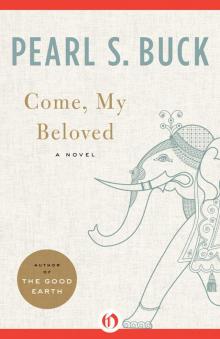 Come, My Beloved
Come, My Beloved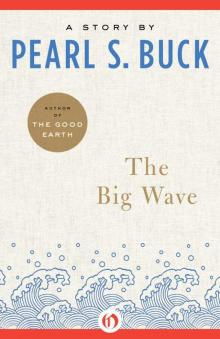 The Big Wave
The Big Wave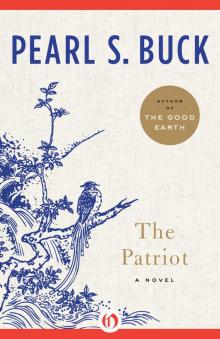 The Patriot
The Patriot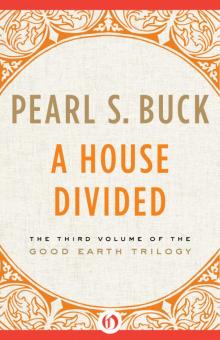 House Divided
House Divided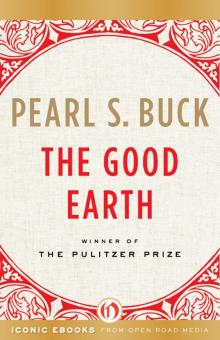 The Good Earth
The Good Earth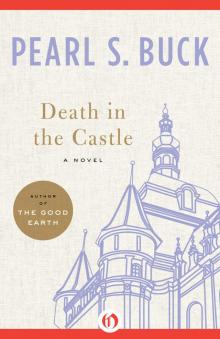 Death in the Castle
Death in the Castle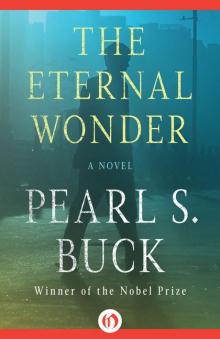 The Eternal Wonder
The Eternal Wonder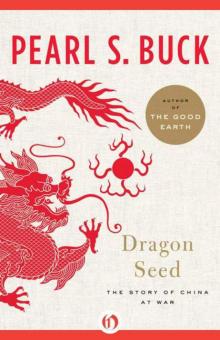 Dragon Seed: The Story of China at War
Dragon Seed: The Story of China at War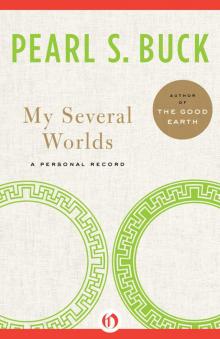 My Several Worlds: A Personal Record
My Several Worlds: A Personal Record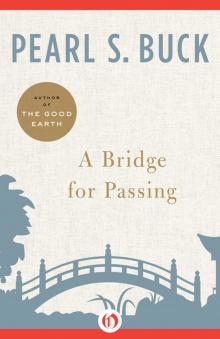 A Bridge for Passing: A Meditation on Love, Loss, and Faith
A Bridge for Passing: A Meditation on Love, Loss, and Faith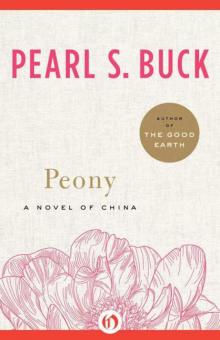 Peony
Peony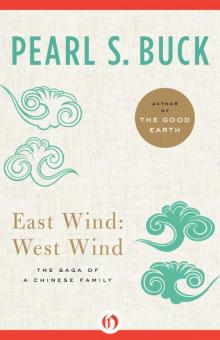 East Wind: West Wind: The Saga of a Chinese Family
East Wind: West Wind: The Saga of a Chinese Family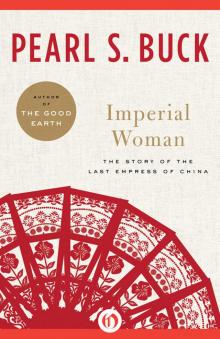 Imperial Woman
Imperial Woman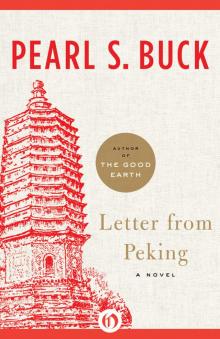 Letters From Peking
Letters From Peking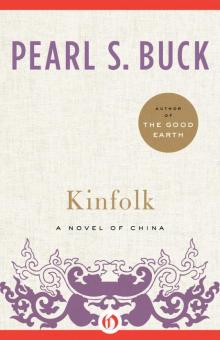 Kinfolk
Kinfolk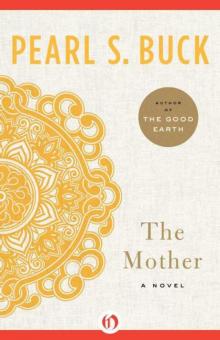 The Mother
The Mother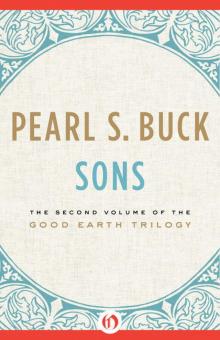 Sons
Sons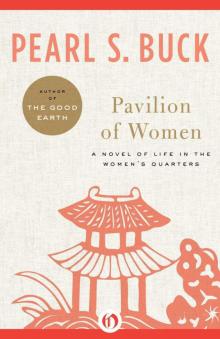 Pavilion of Women
Pavilion of Women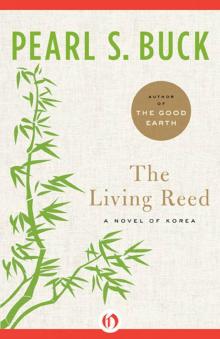 The Living Reed: A Novel of Korea
The Living Reed: A Novel of Korea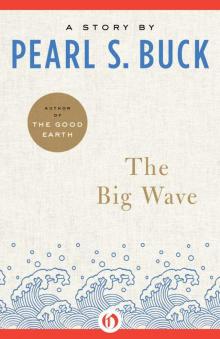 The Big Wave: A Novel
The Big Wave: A Novel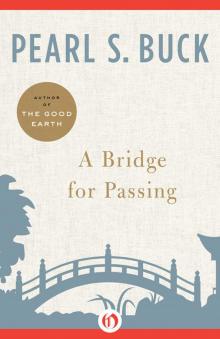 Bridge for Passing
Bridge for Passing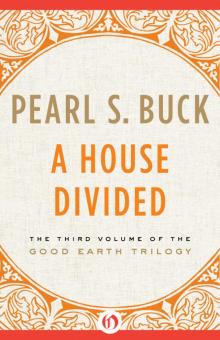 A House Divided
A House Divided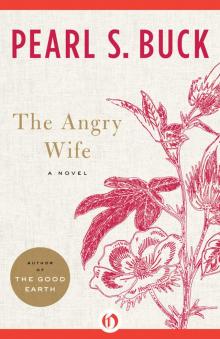 Angry Wife
Angry Wife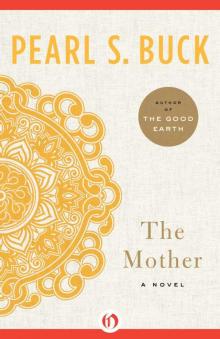 The Mother: A Novel
The Mother: A Novel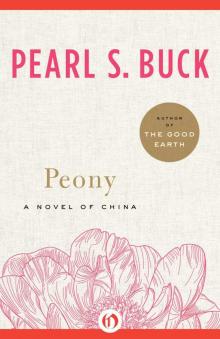 Peony: A Novel of China
Peony: A Novel of China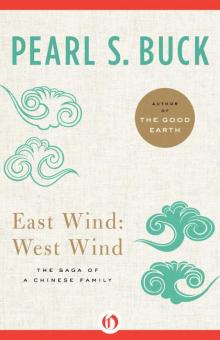 East Wind: West Wind
East Wind: West Wind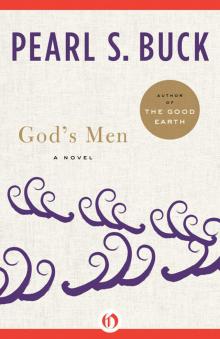 Gods Men
Gods Men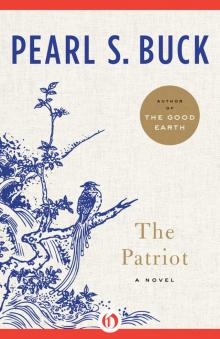 Patriot
Patriot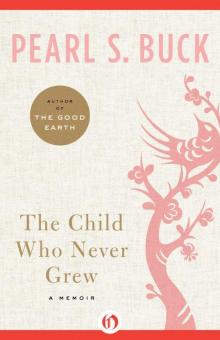 The Child Who Never Grew (nonfiction)
The Child Who Never Grew (nonfiction)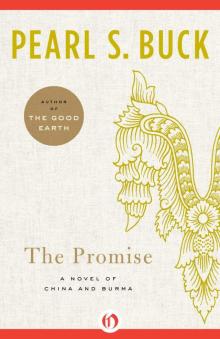 The Promise: A Novel of China and Burma (Oriental Novels of Pearl S. Buck)
The Promise: A Novel of China and Burma (Oriental Novels of Pearl S. Buck)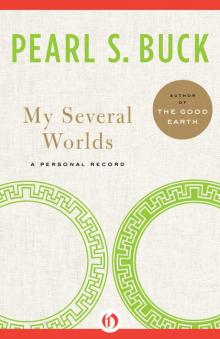 My Several Worlds
My Several Worlds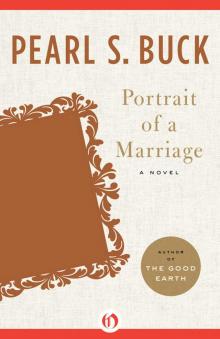 Portrait of a Marriage
Portrait of a Marriage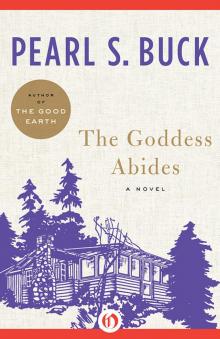 The Goddess Abides: A Novel
The Goddess Abides: A Novel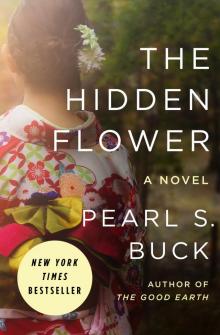 Hidden Flower
Hidden Flower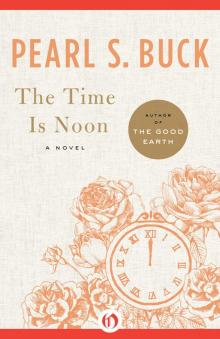 Time Is Noon
Time Is Noon